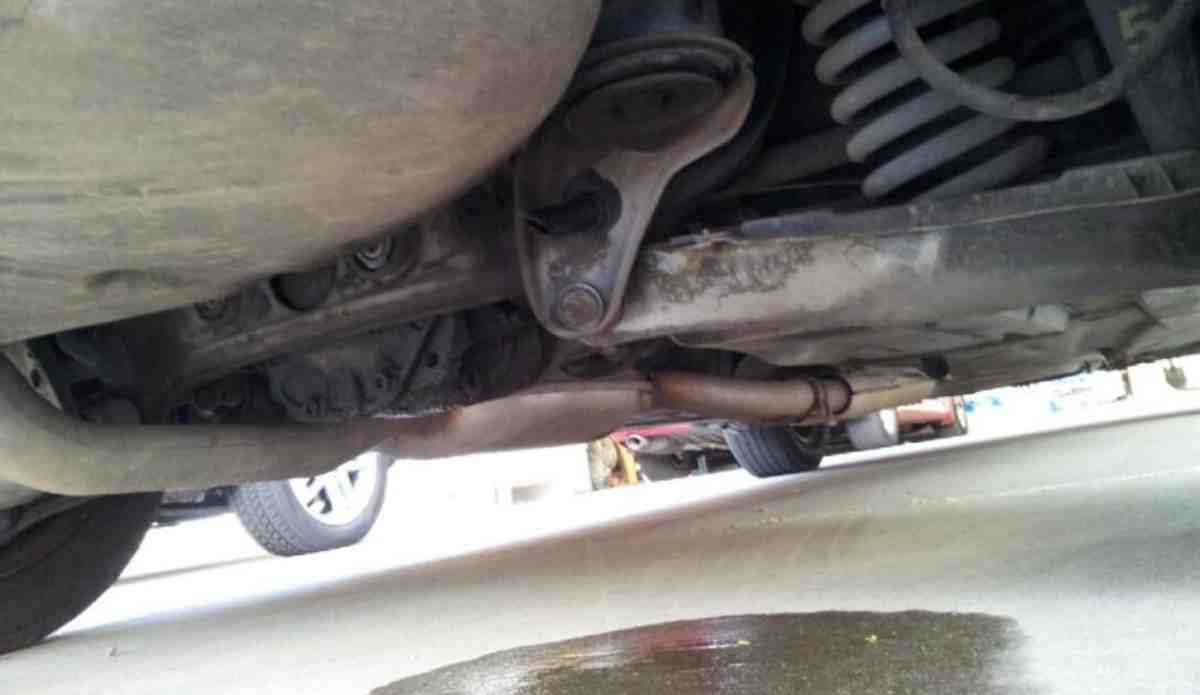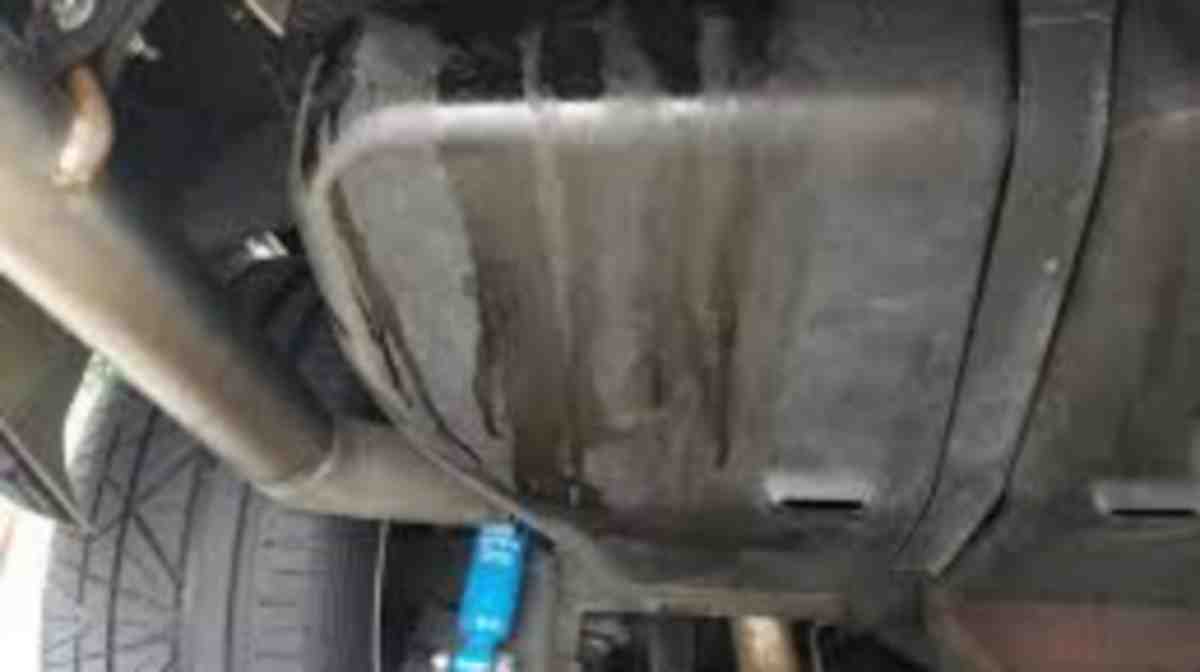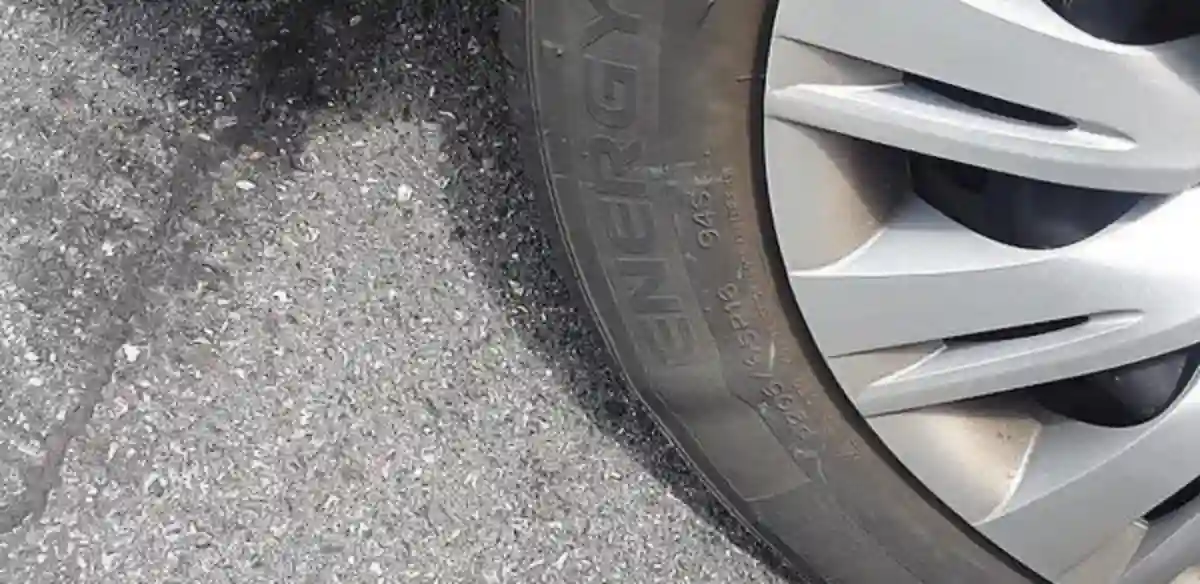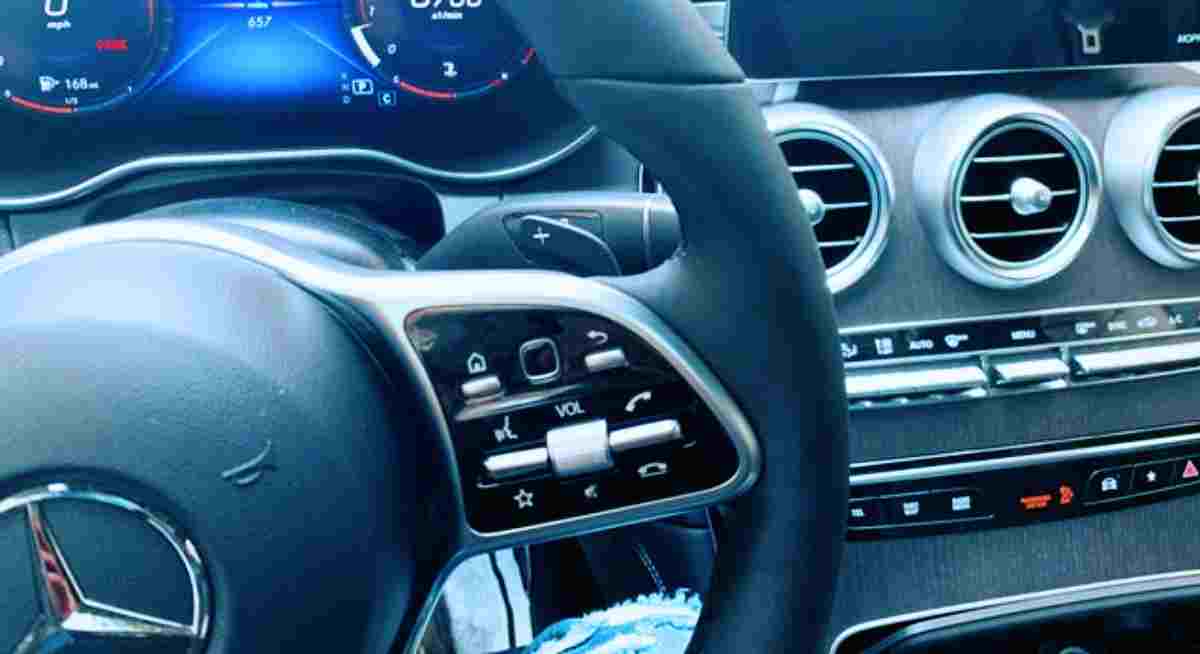Right after moving your car away from a parking position or you mistakenly notice a gas leak coming from your vehicle, it’s usually not a fun experience. Coupled with the increased fees for gas, losing it would attract lots of costs. While it is better to identify it on time, it is also essential to know what’s happening before sending it down to your mechanic for repair. In this post, we will consider the symptoms of a gas leak from a car and how to fix it or diagnose it.
A gas leak from a car happens when there’s a leak around the fuel system. The major causes of a gas leak in cars are puncture and corrosion of the gas tank. It is easy to fix a corroded gas tank if that is the root cause of the gas leak from the car.
To quickly identify if you have a gas leak from a car, you can check for dark or clear liquid puddles where you parked the car. Alternatively, you can also sniff around your vehicle for gas odour. For further confirmation, it is vital to track your gas usage using the gauge to see if it depletes much more quicker.

What causes gas leaks from a car?
Many reasons abound why you experience gas leak from a car. It ranges from simple to more complicated issues that will result in huge costs. But from experience, here are some common reasons gas leaks from the bottom of your car.
-
Leaking hoses and gas lines
Leaking hoses and gas lines is one of the causes of gas leak from a car. The gas line is tasked with delivering gas from the gas tank to the engine, ensuring your car runs smoothly. The gas line handles a lot of pressure and has a lifetime of 55,000 miles to 80,000 miles. But midway, it develops leaks in areas such as the hoses.
Leaks around the hose happen for different reasons, such as a damaged hose because of sealed mounting points. It could also occur due to wear and rust, which is why is it important to check your gas line – especially the vent hose regularly. Gas line leaks can’t be repaired but can only be changed completely.
Signs that your fuel line is faulty
Once you notice these signs, quickly tell your mechanic to change your fuel lines.
- Your car won’t turn on because of low gas in the combustion chamber, despite having gas in your tank.
- Car stalling due to the low gas level.
- The noticeable odour from the car.
-
Damaged gas cap
A damaged gas cap also causes gas leak from a car. Apart from keeping your gas from pouring out from the tank, your gas cap also stops gas fumes from escaping the tank and maintains the correct pressure in the fuel tank.
Read also: why will jumper cable melt?
When your gas cap is damaged, even with a slight crack, your gas leaks. Your nostril is also hit with the smell of gas from the bottom of the car. Therefore, buy a replacement gas cap to get the fuel supply system of your car working correctly.
-
Excessive vibration
The various moving components in your vehicle cause it to vibrate, including the engine, suspension, crankshaft, and transmission gears. However, excessive vibration indicates something is wrong, which could be a gas leak problem.
Unfortunately, this causes stress on the structural parts of the car, which degrade faster and may eventually fail to perform optimally.
-
Bad fuel additives
Adding additives to your car for optimal fuel efficiency is generally okay. However, some poorly-refined additives can cause gas leak from a car.
The fuel supply system can get damaged by harmful additives. Acetone, for instance, can be added as 1-3 ounces per 10 gallons of gasoline to boost vehicle mileage by up to 25%. Unfortunately, acetone is a corrosive substance that can damage the significant fuel supply system components in a car and in extreme cases, the engine, which would also result in gas leaks.
In light of this, automakers are against using acetone in their car fuel system. Your insurance claim could also be rejected for this reason.
-
Worn fuel tank
It is crucial to replace the fuel injection system of your car during its operational cycle, including the fuel supply pump and filter.
Read also: it doesn’t take long to bleed brakes.
If you maintain your fuel tank, you would rarely have to replace it. Nonetheless, it can gradually rot and fail due to exposure to natural wear and tear or moisture and cause gas leak from a car. Road debris can also result in gas leaks caused by properties like road salt.
-
Gas smell
Your nose can help tell when the car has a gas leak problem. Just sniff around. Sometimes, you do not have to sniff around; the smell will hit you.
You may already know what gas smells like, so just inspect the inside of the car to know whether the liquid is gas.
Even while driving, you can smell the car’s gas smell. You may not find a trailing line of gas following your car, which means the leak is puddling up within the car.
Meanwhile, a publication reveals tips for securing free pump gas.
-
Faulty rubber seal or O-ring
It is possible for a gas leak from a car to occur in the fuel injector, which is typically caused by damaged O-rings.
Gaskets have exposure to the engine’s heat, and so could become hard and brittle. This keeps the fuel injector from remaining tight to the engine to prevent gas leaks.
Ensure to inspect the area around the oil filler cap. Any oil residue or debris on the valve cover is a sign that there could be a problem. Inspect the O-ring for damage signs. A little crack or brittle could be all it takes for your gas to leak, so contact your mechanic for replacement components.
Common Car Gas Leak Symptoms to look for

Some common symptoms of gas leak from a car to look for include the following:
-
Wet spots underneath the car
A common symptom is a gas leak under the bottom of the car. If you do not know the location of your car’s fuel tank, refer to the user manual or use the automaker’s online resource.
When you notice wet spots underneath the fuel tank location, it is a symptom of gas leak.
Typically, you will notice a small gasoline puddle after parking your car on gravel or paved spot for a long time. You will meet discoloured grasses if you park the car on the grass surface.
-
Gasoline smell
Gas has a unique smell and could be described as a hydrogen sulphide-like odour or rotten egg. The United States Agency for Toxic Substances and Disease Registry (ATSDR) claims that benzene is responsible for the sweet odour of gas, which enhances performance and gas mileage.
You may catch a whiff of gasoline while driving, and the smell should disperse after evaporating and igniting in the engine. However, if the gas smell lingers and becomes more robust, it is a symptom of a gas leak in the car.
-
A drop in the fuel gauge
The fuel gauge levels are a common way to tell if you have a gas leak problem but not a foolproof method.
Take note of where the needle points on your fuel gauge after parking the car with the engine off. If the fuel gauge levels drop after starting the vehicle, there is a leak you need to fix in the car.
How to fix a gas leak from a car
You will not have much-desired peace of mind without fixing the gas leak. Follow the few steps below to detect and fix a gas leak in your car:
-
Physically inspect the car
Turn the engine off and inspect the car – underneath and under the hood. Driving with a gas leak problem is dangerous. Perhaps, you ate thinking of a possible explosion but not just a blast; it is harmful to the natural environment. But then, a spark can cause the car to catch fire.
If you park your car in a public space, you want to be sure the leak is from another vehicle. This means you may have to park in a different private spot for a while to be sure your car is responsible for the liquid.
-
Locate the source of the leak.
When you confirm the leak is from your car, trace it to the correct spot. If your gas tank is responsible, refer to your vehicle owner’s manual to know the tank’s location.
You could place cardboard, aluminum foil, newspaper, or any material under your car to tell the exact spot the leak is coming from.
-
Confirm if the leak is gasoline
The leak may not be gasoline because your car uses other liquids. You want to know where to fix the problem if the leaking fluid is gasoline. The easier ways to tell gasoline from other liquids is by the smell and color.
- Reddish or pinkish. It could be a transmission fluid if the liquid is reddish or pinkish. Transmission fluid is typically odorless and originates from either the front or near-middle part of a car.
- Orange or green. If the liquid color is orange or green, it could be antifreeze also known as coolant. Coolant could be orange if DEX-COOL or green if it contains ethylene glycol. The color can also be rusty if it contains rust and scale buildups.
- Clear. If the liquid is clear, it could be water from your windshield washing or air conditioner system.
- Black or brown. If the color of the liquid is black or brown, it could be leaking brake fluid. You may see a slightly amber color if you just replaced the engine oil.
- Brown or red. The power steering fluid could also leak as brownish or reddish color.
-
Fix the gas leak
Whether you can fix the gas leak depends on the cause you detected. However, it is advisable to have an experienced mechanic diagnose the car for the problem. The mechanic may also see and fix potential any problem.
Moreover, some component replacement requires a mechanic with the right tools for the job.
Fixing the gas leak will save money only if you know what you are doing. If you own a modern car, it could be too complex, beginning from the components, diagnostic tests, and repair tools, for you to do it yourself (DIY).
Cost to fix a gas leak in a car?
The cost of fixing a gas leak in a car depends on the cause of the problem. Thus, fixing a gas car can cost $150 and up to $1,500. It could be easier to fix a corroded gas tank. For instance, worn edge seams are much easier and cheaper to repair. Areas with lots of snow and ice expose the undercarriage of a car where the gas tank is located to gradual corrosion. However, a punctured gas tank may require replacing the entire gas tank.
The make and model of your car also determine the cost of repairing the gas leak. The components in modern cars are more expensive so that part replacements can run $1,000+.



Today my car just seemed like it was not picking up speed, like it was dragging, and after a while, it was barely going adjust stopped, I was smelling gas, and I had to be pushed out of the road because the car would not crank, a gentleman said it was gas leaking from the front.